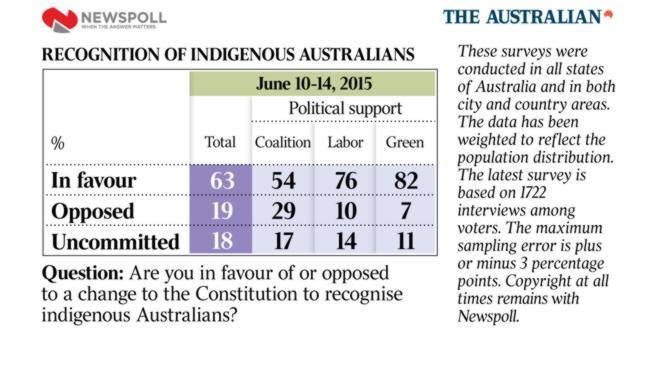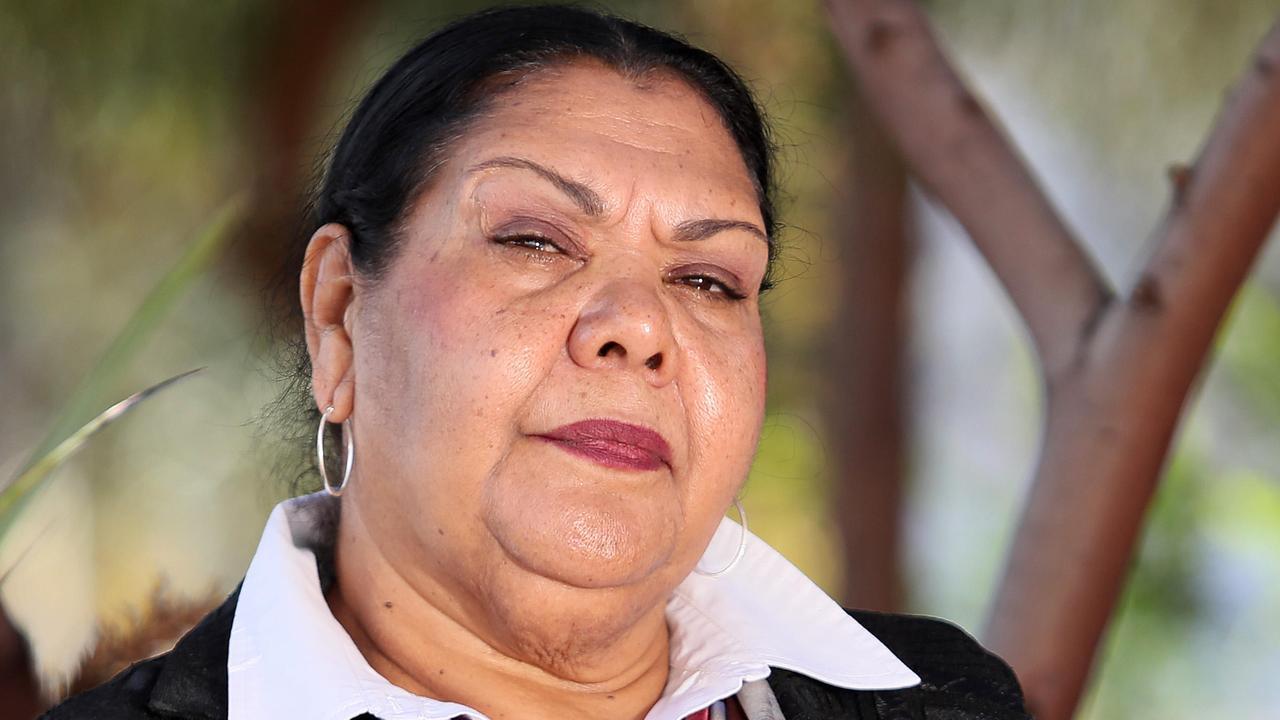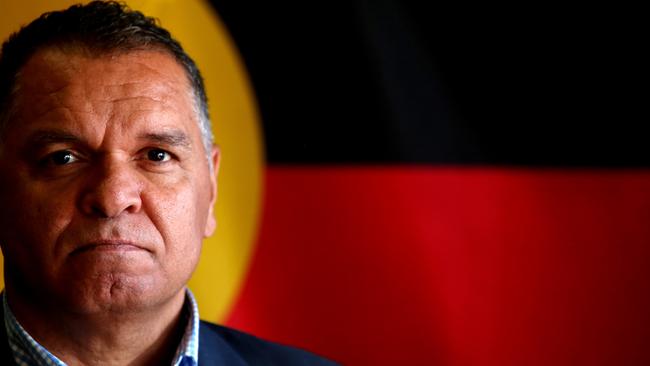Two out of three back indigenous recognition
Almost two out of three voters are in favour of recognising indigenous Australians in the Constitution.

Almost two out of three voters are in favour of recognising indigenous Australians in the Constitution.
A Newspoll, conducted exclusively for The Weekend Australian, reveals 63 per cent support constitutional recognition, with 19 per cent opposed and 18 per cent uncommitted.
Support is strongest among Greens and Labor voters, while there is a smaller majority of Coalition supporters in favour. Almost 30 per cent of Coalition voters are against any change while fewer than one in 10 Labor and Greens voters are opposed.
The poll comes two weeks before Tony Abbott, Bill Shorten and indigenous leaders will meet in Sydney to debate the best model to pursue at a referendum slated for 2017.
The Prime Minister said yesterday the July 6 summit would examine “how far we can go (to) properly acknowledge indigenous people in the Constitution and in our national life while at the same time unifying our country, because constitutional recognition of indigenous people needs to be a unifying moment for our country, not a divisive one”.
He said he looked forward to discussions with Cape York leader Noel Pearson, who warned on Thursday Mr Abbott could be one of the biggest “hurdles” because he might not have the “political capital” to push an acceptable model for constitutional recognition through his partyroom.
The Newspoll of 1722 people, conducted last weekend, found 54 per cent of Coalition voters were in favour of a change, with 29 per cent against and 17 per cent uncommitted.
Among Labor supporters, 76 per cent were in favour, 10 per cent against and 14 per cent were uncommitted while 82 per cent of Greens voters backed change with 7 per cent against and 11 per cent uncommitted.
Mr Pearson told the national native title conference in Port Douglas that Mr Abbott had lost political capital with his “captain’s pick” to give a knighthood to Prince Philip on Australia Day. “The first hurdle is Tony Abbott; he has to lift his position. And we are going to the bank account of his political capital and saying, ‘What have you got to spend on us?’ And the answer is the ATM has been raided, Prince Philip has been given the bank balance.”
He said the “second and most profound’’ hurdle was the Coalition partyroom where “they are using recognition as the pawn” in leadership manoeuvrings.
Asked about the comments yesterday, Mr Abbott said: “Look, Noel and I go back a long, long way … I’ve spent a lot of time over the years in Cape York, much of it in Noel’s company. Now Noel wants to see recognition happen. He wants it to happen soon. I want it to happen as soon as possible but it’s best to get this right rather than to rush it.”
The summit is shaping as a crucial moment to judge whether consensus can be reached on the referendum proposal.
The Opposition Leader last week called for a “concrete proposal”, saying it was needed to reach a broad consensus and the lack of a question created a void that could be exploited.
Some insist the referendum needs to remove outdated clauses relating to race, while there are mixed views on whether to support a limited statement of recognition within the Constitution, or a more poetic declaration outside the nation’s founding document.
Mr Pearson is advocating a public vote on a 300-word declaration of recognition, along with the establishment of an indigenous body enshrined in the Constitution to advise on legislation. Others, including advocate Frank Brennan and the Prime Minister’s indigenous adviser Warren Mundine, are arguing for a more conservative approach.
Last week, the head of the Recognise campaign, Tanya Hosch, said a model had to be decided by the end of the year to achieve a “yes” vote in 2017.
A survey of 827 Aboriginal and Torres Strait Islander people conducted on social media by IndigenousX has challenged claims indigenous people overwhelmingly backed a model that delivers only recognition.
It found 13 per cent would support a referendum on recognition that did not include the removal of race discrimination powers, with 68 per cent saying they would vote against it and 20 per cent unsure. Support rose to 33 per cent if the referendum included removing race discrimination powers.
The proposal that had majority support was a referendum that included creating an indigenous parliamentary body, as promoted by Mr Pearson, which was backed by 54 per cent.


